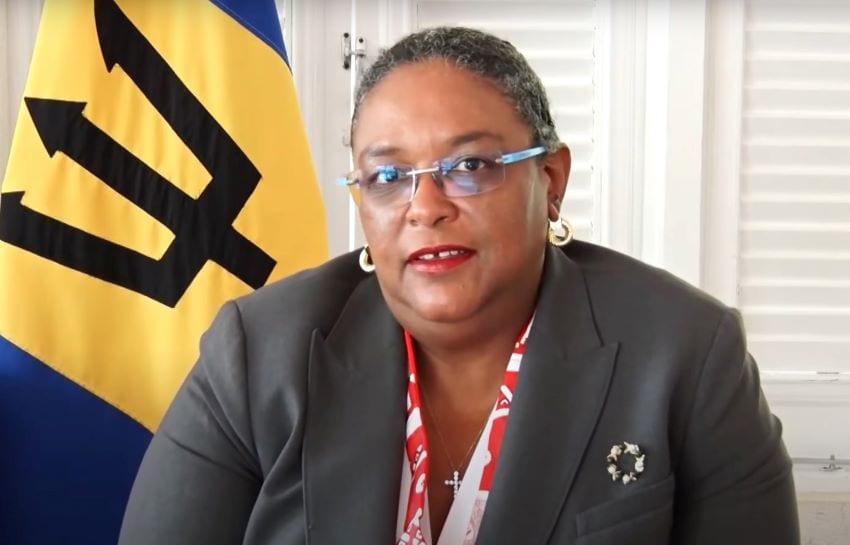Caribbean countries affected by crimes of native genocide and African enslavement are calling for more than an apology from some European states and commercial enterprises for their role in the Atlantic slave trade and the practice of chattel slavery.
Prime Minister Mia Amor Mottley made this clear, as she participated in a virtual discussion across the region on the topic: From Apology to Action – CARICOM’s Call for Reparatory Justice.
The event was organized by the CARICOM Reparations Commission, and livestreamed by UWITV to update the media about recent developments in CARICOM’s push for reparatory justice.
Ms. Mottley said: “I do not know how we can go further unless there is a reckoning first and foremost that places an apology and an acknowledgement that wrong was done, and that successive centuries saw the destruction of wealth and the destruction of people in a way that must never happen for any society, to any race in any part of this world again.
“… And the unbelievable failure of countries to first acknowledge that with an apology, and not that something wrong happened, but with a written and clear apology to say, ‘we were wrong, we will not do it again’, and more importantly, we must pay recompense for what was done. That is the first step of walking the walk.”
Prime Minister Mottley noted that as a direct result of the aftermath of the slave trade and colonization, the region was now one of the most highly indebted places in the world.
Consequently, she called for a plan for economic rehabilitation with funding coming from Britain, France, the Netherlands and the United States of America, to redress the imbalance, since significant sums of wealth from the region had gone to build those countries.

Stressing that the notion of the rightness of the reparations argument had been with Caribbean governments for “a very, very long time”, she maintained that such a discussion was “not just simply about money, but it was also “about justice” and allowing the region to have the space for policy flexibility to be able to deal with its socio-economic problems.
Ms. Mottley pointed out that the extraction of centuries of wealth from the region by the colonial masters had left the Caribbean with “very, very dire social and economic circumstances”, which, she said, were being compounded by consistent attacks in the area of financial services.
The Prime Minister told her regional audience that if the Caribbean was to reverse its fortunes, then there had to be the capacity for foreign policy spacing at the regional, hemispheric and international levels, better access to education, healthcare, capital, land and housing.
During today’s forum, Sir Hilary called for a summit on reparations as phase two of the Independence process, to discuss debt repayment, with dialogue among governments of the region, the former colonizers, the private sector, and civil society.
Also taking part in the discussion were Jamaica’s Minister of Culture, Gender, Entertainment and Sport, Olivia Grange; Chairman of the CARICOM Reparations Commission and Vice-Chancellor of the University of the West Indies (UWI), Professor Sir Hilary Beckles; and Director, Centre for Reparations Research, UWI, Professor Verene Shepherd.
